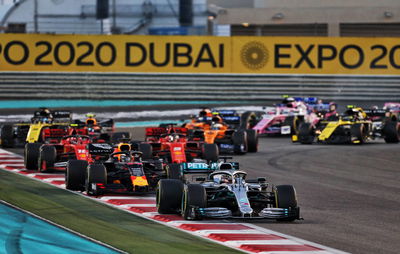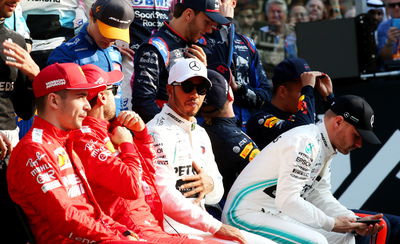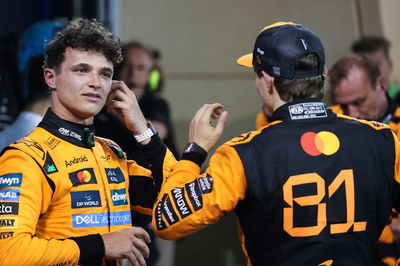Symonds wants collaboration from teams on future engine regs
Formula 1 technical consultant Pat Symonds is hoping for collaboration from teams over future power unit regulations.
F1 is braced for a major overhaul to its sporting, technical and financial regulations in 2021 and is expected to operate with its current V6 hybrid engines until at least 2024, before being replaced in either 2025 or 2026 to align with the championship’s project to become carbon neutral by 2030.

Formula 1 technical consultant Pat Symonds is hoping for collaboration from teams over future power unit regulations.
F1 is braced for a major overhaul to its sporting, technical and financial regulations in 2021 and is expected to operate with its current V6 hybrid engines until at least 2024, before being replaced in either 2025 or 2026 to align with the championship’s project to become carbon neutral by 2030.
Symonds, who is working as part of an independent technical team led by F1 sporting boss Ross Brawn to help determine the '21 regulations, recently revealed that two-stroke engines running on eco-fuel are under consideration.
“We’re getting a lot of cross-platform sharing, and our next big project is the 2025-2026 power unit, and what I’m trying to do with that is to see if we can get something similar going on,” Symonds said at Autosport International earlier this month.
“Probably within F1 - within my organisation - I don’t think we put together a group in the same way we did with aerodynamics, because it’s a very different thing.
“But I’ve spoken to a couple of the power unit manufacturers already about would they be prepared to do some cooperative research in certain areas.
“So we are seeing some sea changes not just in Formula 1 regulations, but perhaps more importantly in the way people think.”
F1 has traditionally faced resistance from teams on the eve of transitions into major regulation changes, and the forthcoming '21 overhaul has been the subject of much debate in recent months.
Symonds says such opposition is “only natural” but hopes teams will be more open to future changes as F1 continues its bid to improve the spectacle while becoming more environmentally-conscious.
“What we need is the evidence to prove it,” he explained.
“In terms of resistance to change, unfortunately everyone is resistant to change. It seems to be a natural thing. There are very few people who welcome change.
“Interestingly, successful people tend to welcome change and deal with change a lot better than others.
“With the teams, it’s a little bit different because you’ve got to remember the huge investment involved as well.
“When we were working on the 2021 regulations, I have to say that those at the front were more resistant, and those at the back were less resistant – well, not less resistant, they were fully supportive.”












